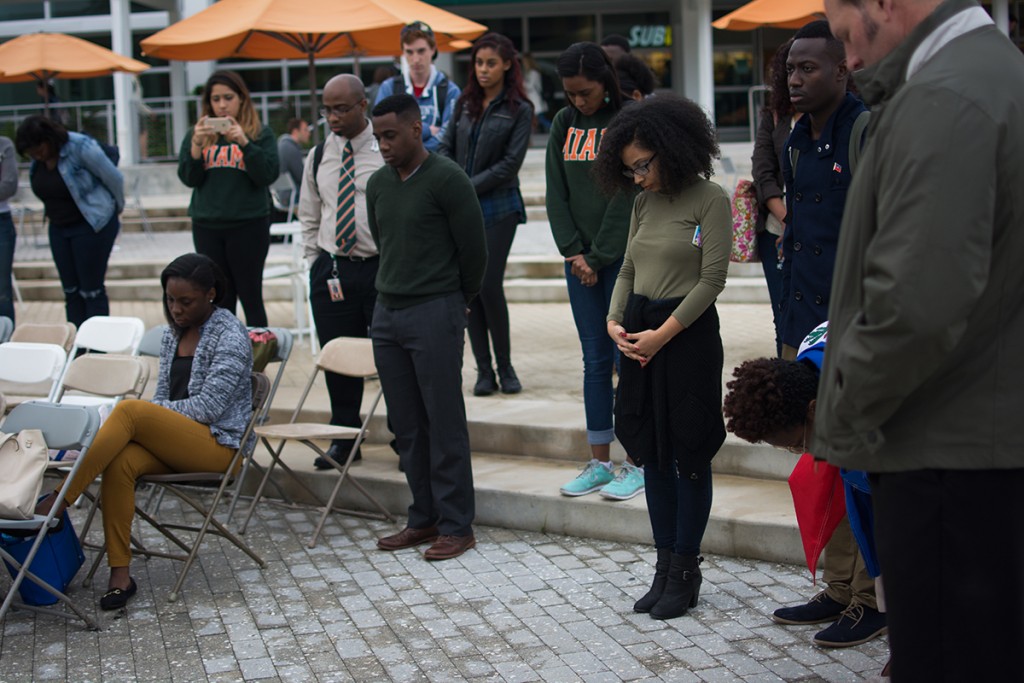Felicia Knaul challenged students to apply Haiti’s example of resilience during the 2010 earthquake to the university community and beyond at the Haiti Remembrance Ceremony on Tuesday at the Lakeside Patio Stage.
Knaul, director of the University of Miami’s Miami Institute for the Americas, was invited to speak by Planet Kreyol, a Haitian student organization, before a moment of silence was held at 4:53 p.m. – exactly six years after the 7.0 earthquake occurred that killed over 200,000. Knaul called the acts following the earthquake “world class and [an] extraordinary demonstration of what is resilience.”
“Reliance is what we can apply to fight and respond to the earthquakes that happen every single day [and] poverty that happens in Haiti and in other places,” Knaul said.
Knaul even tied in causal factors that generated the earthquake and will generate other earthquakes in our hemisphere – a topic she and her husband, University of Miami President Julio Frenk, are passionate about.
She went on to challenge attendees to think about what can be done in the community and beyond to change how much natural and human-made disasters shake the world during the moment of silence in remembrance.

Miami has one of the largest Haitian populations in the nation, which is why, according to Planet Kreyol Vice President and senior Freddy Michaud, the organization felt that it was appropriate to commemorate and honor the Haitian community six years after the tragedy.
“Haitian-American people have had an impact on the people in Haiti,” Michaud said. “The work that we do here directly influences them and we want to make sure that we keep this moment in remembrance of them and show that work still needs to be done.”
Although many negative things happened following the disaster, External Vice President senior Robenson Beralus said that he believes that the most positive aspect to come out of the tragedy is that the Obama administration allowed for Haitian migrants to obtain legal documents including driver’s licenses and work permits, something that greatly helped Haitians looking for a better life.
For Beralus, Jan. 12, 2010 is a day he will always remember. He was sitting at home with his uncle “just hanging out” when the earthquake occurred and they received a phone call that his uncle’s wife had died.
“It was the first time I ever saw my uncle cry,” Beralus said.
Beralus’s story is just one of thousands, according to Secretary for Planet Kreyol senior Emmanuella Jean-Jacques, which is why it is so important to remember the earthquake each year.
“We are Haitians,” said Jean-Jacques. “It’s a way for us to come together and be there for each other on a day like today.”





